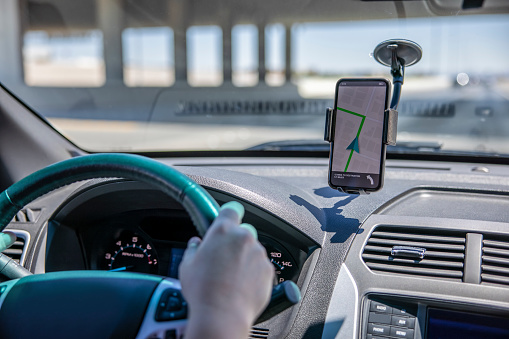
An Indianapolis car accident lawyer reminds drivers to avoid distraction
Texting and driving or using other electronic devices when you're behind the wheel of a car puts everyone else on the road at risk of getting injured in a car accident.
That's why in July 2020, the state of Indiana enacted its hands-free law. This law was put in place to prohibit motorists from holding mobile devices like smartphones and tablets in their hands while driving. It was enacted with the hopes of reducing distracted driving accidents and improving roadway safety.
Still, far too many people ignore the law and cause crashes that result in severe injury or death.
Breaking down the hands-free law
According to the Indiana Department of Transportation (INDOT), the hands-free law means:
- You cannot use your cellphone if it is in your hand.
- You are allowed to use a Bluetooth device, headset, or any other hands-free technology.
- You can still use your phone's GPS for directions as long as you are using your device in hands-free mode.
- If you break this law you will be subject to a fine of up to $500.
- As of July 29, 2021, points will be added to your record if you break the law. If you accumulate too many points within a certain period, your driver's license may be suspended.
The only exception to the law is if you need to call 911 to report an emergency.
Texting and driving is particularly dangerous
Distractions can come in many different forms when you're driving, whether it's talking to a passenger, eating, self-grooming, rubbernecking, or daydreaming.
Typically, distractions can be separated into three different categories:
Manual distractions
These are distractions that involve removing your hands from the steering wheel. In the event that you need to make a sudden maneuver to avoid a crash, it's critical that you have both your hands on the wheel to control your vehicle.
Visual distractions
These are distractions that cause you to take your eyes off the road. It should go without saying that you need to see where you're going when you're driving, but far too many motorists misjudge their margin for error. Keep in mind that if you're going 55 mph and take your eyes off the road for just 5 seconds, it's the same as driving the length of a football field while blindfolded.
Cognitive distractions
Whenever you let your mind wander from the task of driving, it's considered a cognitive distraction. This can include things like talking to passengers, having a conversation on the phone, daydreaming, thinking about work or school, replaying an argument you had with a co-worker or loved one, or simply driving when you're angry, frustrated, or emotional.
It's worth noting that texting and driving falls under all three forms of distraction. By reading or sending a text, you need to take a hand off the wheel to hold your phone (manual), take your eyes off the road to look at the screen (visual), and think about what you just read or are about to send (cognitive).
Do hands-free laws help prevent distracted driving accidents?
Three independent studies found that when drivers were holding a cellphone, the risk for a car crash was 2 to 6 times greater than when they were not.
As stated on the INDOT website, in 15 states with hands-free laws, traffic fatalities have decreased by an average of 16%. Moreover, 15 states and the District of Columbia had these laws in place before 2018.
And of those 15 states, 12 of them saw a decrease in their traffic fatality rates within 2 years of passing and enforcing the law.
Send distracted drivers a strong message.
When a distracted driver causes an accident that leaves you or someone you love injured, you need to understand your legal right to compensation. At Hocker Law, LLC we know how to hold negligent drivers accountable and help crash victims recover their losses.
Our dedicated legal team prides itself on providing exceptional legal representation to our clients, and our experienced Indianapolis car accident attorneys will do everything we can to help you find your way forward.
To find out how we can help you, contact us today to schedule a free consultation. We have three offices located in Indiana, including two in Indianapolis.
